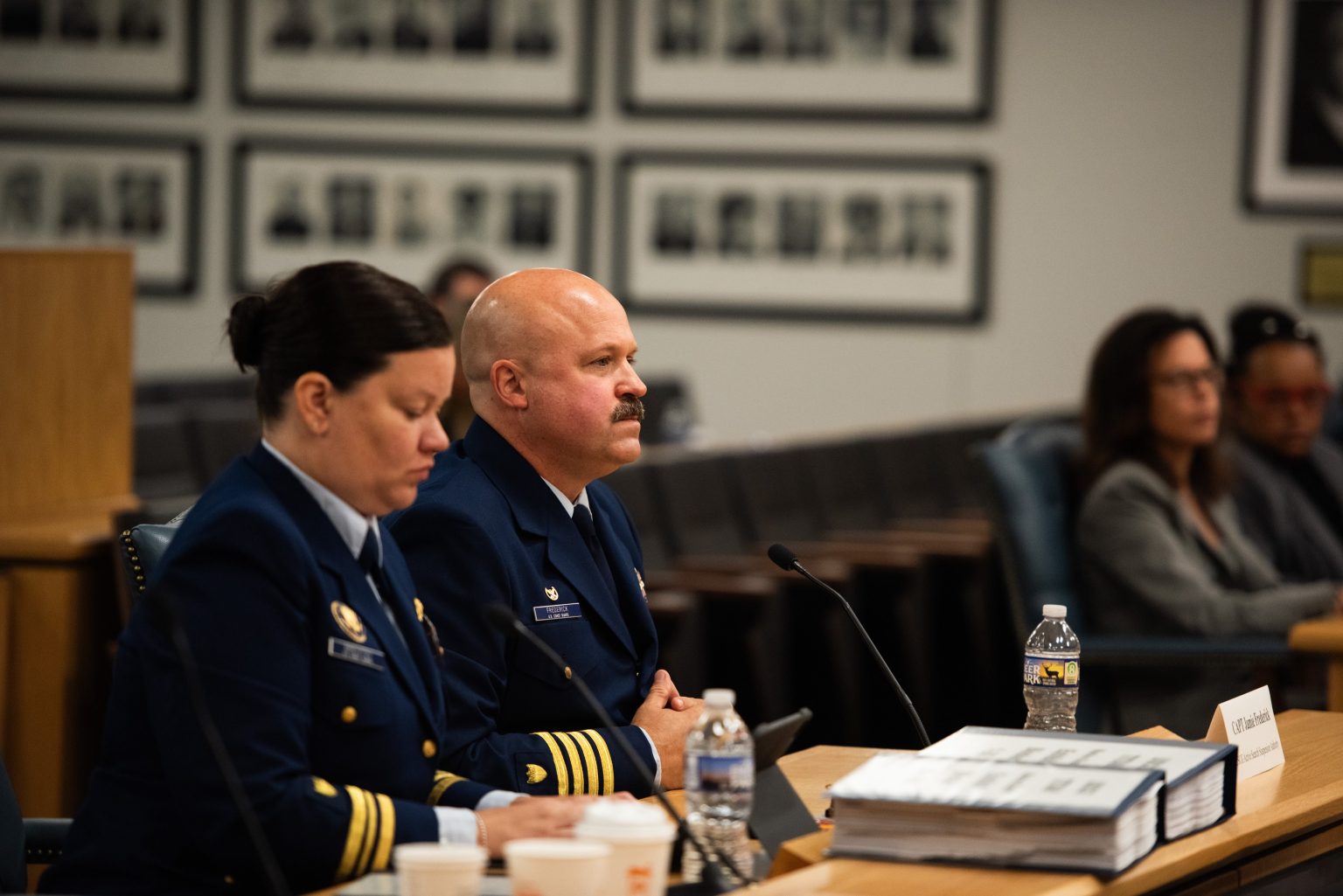The U.S. Coast Guard recently concluded two weeks of public hearings regarding the loss of OceanGate’s Titan submersible and its crew. The hearings revealed shocking information, such as the CEO’s statement about buying a congressman if the Coast Guard stood in the way of Titan’s development. The master of Titan’s mothership also testified that he felt a “shudder” around the time the sub imploded, leading to the tragic loss of five lives, including the CEO Stockton Rush, who was determined to dive to the Titanic despite warnings from employees and engineers.
Matthew McCoy, a former OceanGate employee, testified about the company’s business model of taking paying clients on deep-ocean dives as “mission specialists,” which raised concerns about Coast Guard regulations. Rush’s response to McCoy’s concerns about U.S. regulations was shocking, revealing a disregard for safety protocols. McCoy ultimately resigned from the company due to these ethical concerns. The hearings also traced OceanGate’s development of a carbon-fiber hull for Titan, which led to a catastrophic loss during deep-sea testing.
The Coast Guard’s response to the missing sub and crew was discussed during the hearings, with Capt. Jamie Frederick recounting the challenges faced during the search efforts. The discovery of debris from Titan on the seafloor aided in the investigation, but there were conflicting reports about noises picked up by sensors at sea. The Navy provided crucial information, ruling out the possibility of trapped crew members based on the nature of the banging noises. The hearings shed light on key details about the search operation and the challenges faced by the search team.
The statements made by the master of the Polar Prince, the mothership of OceanGate’s operations, were revealed during the hearings, suggesting a possible disturbance felt on the ship at the time of Titan’s disappearance. This information could have had a significant impact on the search operation had it been known earlier. The Coast Guard Marine Board of Investigation acknowledged the evidence presented and highlighted changes in procedures based on whistleblower statements. Further investigative work is required, with the National Transportation Safety Board also issuing a separate report on the probable cause of the accident.
The hearings concluded with assurances to the families and friends of those who died during the tragic incident. The investigative efforts will continue, leading to recommendations for changes to help prevent similar occurrences in the future. The commitment to thorough analysis and evidence collection underscores the importance of uncovering the root causes of the Titan tragedy. The Coast Guard and other agencies involved will work towards ensuring accountability and implementing necessary changes to improve safety standards in deep-sea exploration ventures.


